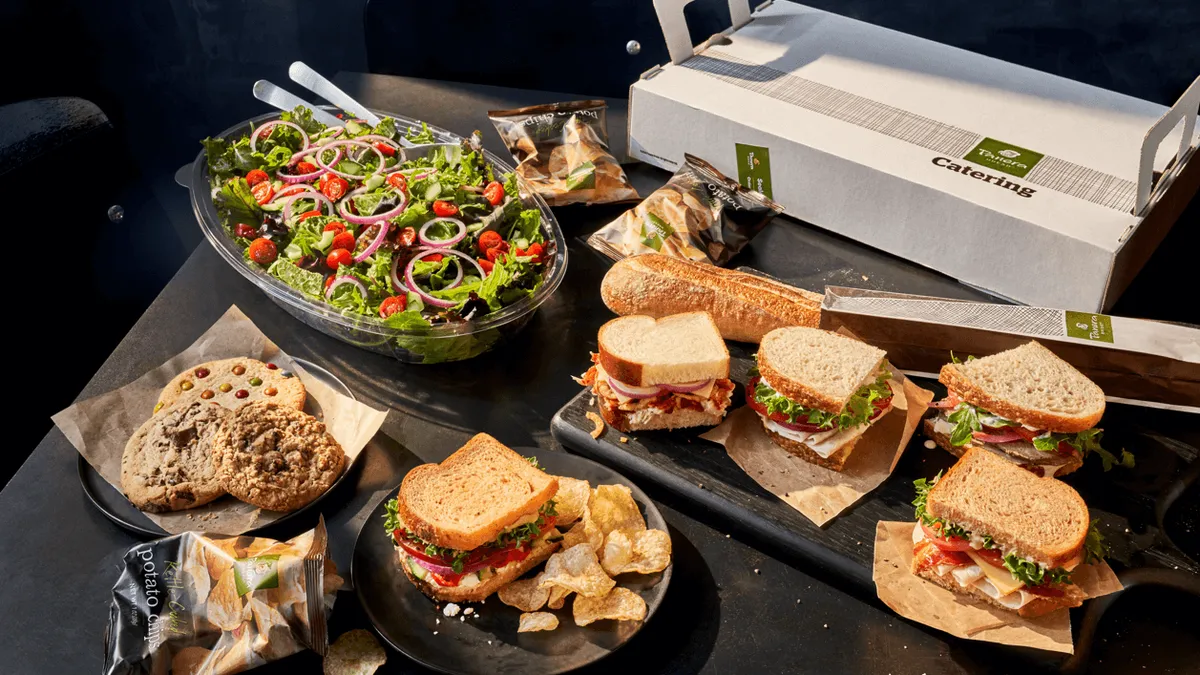Like most restaurants, Panera Bread has had to adjust to constant fluctuations, like closing in-store dining during the pandemic, while also pivoting to offer curbside pickup and third-party delivery for menu and grocery items.
Even now, the food industry continues to evolve. However, constant fluctuations and disruptions mean restaurants like Panera must make decisions quickly and accurately, consolidating data and insights across all of its functions.
For Panera, the Workday unified platform solution implemented years earlier provides a distinct advantage during times of change like the pandemic, bringing HR and finance data together to determine opportunities and minimize risk during a chaotic time.
Early adoption of HCM and finance solutions added insight and agility for growth and scale
In 2014, Panera wanted to replace an antiquated HCM system that no longer fit the needs of a growing business, says Mark Wooldridge, VP, Controller and Chief Accounting Officer at Panera Bread. "The current system took a long time to process data and offered little self-service capabilities for the general managers. Our business was growing, not just in size but in complexity as well. We needed something better, not only for right then but for what we would be growing into in the future. We maintain a strong focus on our general managers and our associates, and on how we can give them tools to do their job effectively."
With the Workday HCM system, Panera could capture more workplace data, and the platform provided better analysis of the information, improving the speed and accuracy of payroll. Wooldridge added that Workday's self-service tools helped general managers get the information they needed to make decisions quickly and gave associates access to their own data regarding scheduling, pay, and time-off requests.
Unsurprisingly, when it was time to consider updating the company's financial system, Panera turned to Workday once again. Traditionally, Panera focused on investing capital into the bakery-cafes' customer-facing technologies, Wooldridge says, but maintaining an outdated financial technology solution was risky to the organization. "Ultimately, we were a public company at the time, and I had to have a system that we could rely on. Moving to a cloud-based, more automated platform gave us greater flexibility and allowed us to close the books quicker and with more confidence," he says.
After going live with the Workday Financial Management solution in 2017, general managers could create their monthly profit and loss statements and drill down to analyze the results — a vast improvement from the previously available reports. Wooldridge says that general managers would get a static version of their P&L and a big pile of data from a separate file in the past. "They would have to piece the details to the summary to understand what the drivers of the results were. Often, they would email or call accountants in our support center. Now, general managers can dig into the data to get answers on their own, as soon as needed." That lets them make more informed and faster decisions, Wooldridge says.
The Workday platform gives Panera Bread critical flexibility
When most Panera restaurants closed indoor dining during the pandemic, sales were cut in half nearly overnight, Wooldridge says. Fortunately, sales rebounded."Having a unified platform for HCM and financials, having that cohesive spot where general managers could get information at the touch of their fingers was critical. "Whether it was payroll or financial related, that cohesion helped general managers make decisions in a very timely way. Everything had to be decided quickly, from how much labor do I need in the cafe to how am I doing on my P&L?"
Using Workday's self-service capability allowed Panera to configure new features in the HCM system and track the data to keep business moving, Wooldridge explains. With nearly 1,000 company locations across the country, each state, and even each city having different COVID regulations, general managers had to look at aspects like scheduling and pay rate separately. "Having flexibility within the systems to tailor to certain jurisdictional specific nuances was very important."
Operating as disruptions continue
Even after the health crisis subsides, disruptions in the quick-service restaurant industry are likely to continue. Although restrictions were lifted for many restaurants, some still closed for dining in because of labor shortages, Wooldridge says. "Responding effectively to continued disruptions means making sure we monitor appropriate staffing levels and have access to turnover metrics. We need to have data on wage rates and understand supply and demand. Having access to real-time associate data has been imperative; it allows general managers to make timely decisions."
Panera implemented Workday's platform to give general managers and their teams the tools to make work easier, faster, and quicker. Ultimately, the solution also gave Panera the data and insights to make the business decisions needed to weather long-term uncertainty—and despite the challenges, propelling the business forward










